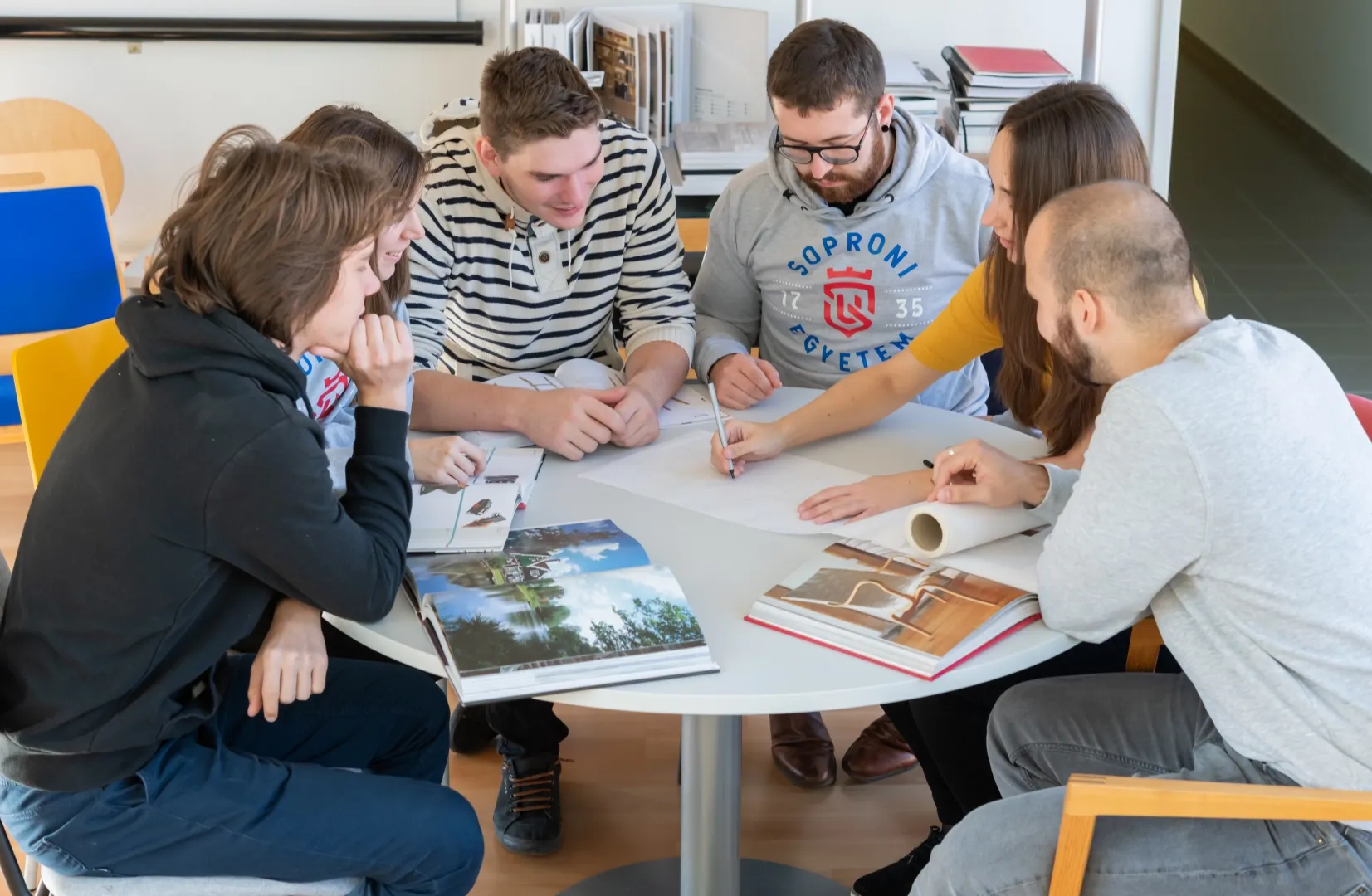(Official name of the study programme: MSc in Timber Industry Engineering)
Innovative Solutions for Sustainable Wood Utilization
Programme Overview
The MSc in Timber Industry Engineering at the University of Sopron is designed to train engineers with expertise in wood processing, utilization, and product development. This program emphasizes the integration of technical, environmental, and financial aspects of the timber industry while preparing students for the latest technological advancements and sustainable practices.
Graduates will acquire the skills to lead innovation in wood processing, develop advanced technologies, and address industry challenges through research and practical applications.
| General information | |
| Duration: | 4 semesters |
| Tuition fee: | 3000 USD / semester |
| Study mode: | full time |
| Intake: | September / February |
| Application period - self financed: |
September intake: From 1 March to...
February intake: 1 September - 31 October |
| Application period - Stipendium Hungaricum scholarship: | mid November - mid January |
| Language of Instruction: | English |
| Faculty: | Faculty of Wood Engineering and Creative Industries |
Why Choose This Programme?
.jpg) This MSc program builds on the Faculty's long-standing expertise in timber engineering and positions graduates for global opportunities in research, industry, and academia.
This MSc program builds on the Faculty's long-standing expertise in timber engineering and positions graduates for global opportunities in research, industry, and academia.
Program Highlights:
- Focus on sustainable wood utilization and advanced wood processing technologies.
- Opportunities for hands-on learning through joint research projects with national and international industrial partners.
- Exposure to cutting-edge topics, including non-destructive testing (NDT), nano cellulose applications, and carbon fiber-reinforced wood.
Career Opportunities:
Graduates are highly sought after in industries such as:
- Primary and secondary wood processing (sawmills, furniture manufacturing, wood construction).
- Research institutes and universities worldwide.
Master Thesis Project Opportunities
Students will engage in innovative research, collaborating with industry and academic partners. Sample topics include:
- Utilizing fast-growing plantation wood species (e.g., poplar, paulownia) for high-value products.
- Developing technologies for outdoor furniture and playgrounds.
- Exploring wood modification methods, such as acetylation and thermal treatments.
- Investigating non-destructive testing methods and moisture measurements using NIR spectra.
- Designing carbon fiber-reinforced wood for load-bearing elements.
- Advancing wood protection techniques and surface stability treatments.
Program Goals and Competencies
Program Goals:
The MSc in Timber Industry Engineering prepares students to:
- Attain advanced theoretical and practical knowledge in wood utilization, processing, and product development.
- Address technical, environmental, and financial challenges in the timber industry.
- Pursue further studies in PhD programs or lead technical advancements in the field.
Competencies Developed:
Graduates will:
- Master career-specific skills and apply them in laboratory work and design.
- Develop systematic understanding of materials, technologies, and products.
- Gain management and teamwork skills for leading projects and teams.
- Acquire user-level expertise in computer-based communication and analysis.
- Understand environmental protection, quality management, occupational safety, and legal and ethical requirements.
- Learn scientific research techniques for problem-solving and innovation.
Graduates Are Capable Of:
- Applying their expertise to solve complex engineering challenges.
- Processing new information and generating original ideas.
- Developing new technologies and optimizing production processes in wood engineering.
- Managing technological, economic, and human resources effectively.
- Continuing self-education to remain at the forefront of the industry.

Online Application for MA/MSc Programs
Applicants to the University of Sopron's English-taught MA/MSc programs must provide the following:
- BA/BSc Certificate: Provide a copy in English or German.
- Transcript of Records: Upload your academic records in English or German.
- Passport Copy: Ensure clarity and validity.
- Proof of English Proficiency:
- A valid English proficiency certificate at B2 level or higher, such as TOEFL, IELTS, Cambridge English Qualifications (FCE or higher), Oxford Test of English (OTE) or other internationally recognized English tests, or
- Medium of Instruction Certificate (if applicable).
- Note: Native English speakers are exempt from this requirement.
- Application Fee Payment Confirmation: Upload the receipt.
- Optional Documents: Add recommendation letters, motivation letters, or a CV.
Important: If any document is not in English or German, attach a certified translation.
About the Faculty
The Faculty of Wood Engineering and Creative Industries is one of the leading university centers in Central Europe, with roots tracing back to 1735. It combines decades of expertise with cutting-edge research and training in technical, arts, and IT fields.
The Faculty’s reputation is evidenced by its students' and faculty’s consistent success in national and international competitions. This program offers a supportive environment with close collaboration between students, professors, and industry partners.
Join the MSc in Timber Industry Engineering at the University of Sopron to lead the way in sustainable wood utilization and advanced timber technologies.
Contact The Faculty:








